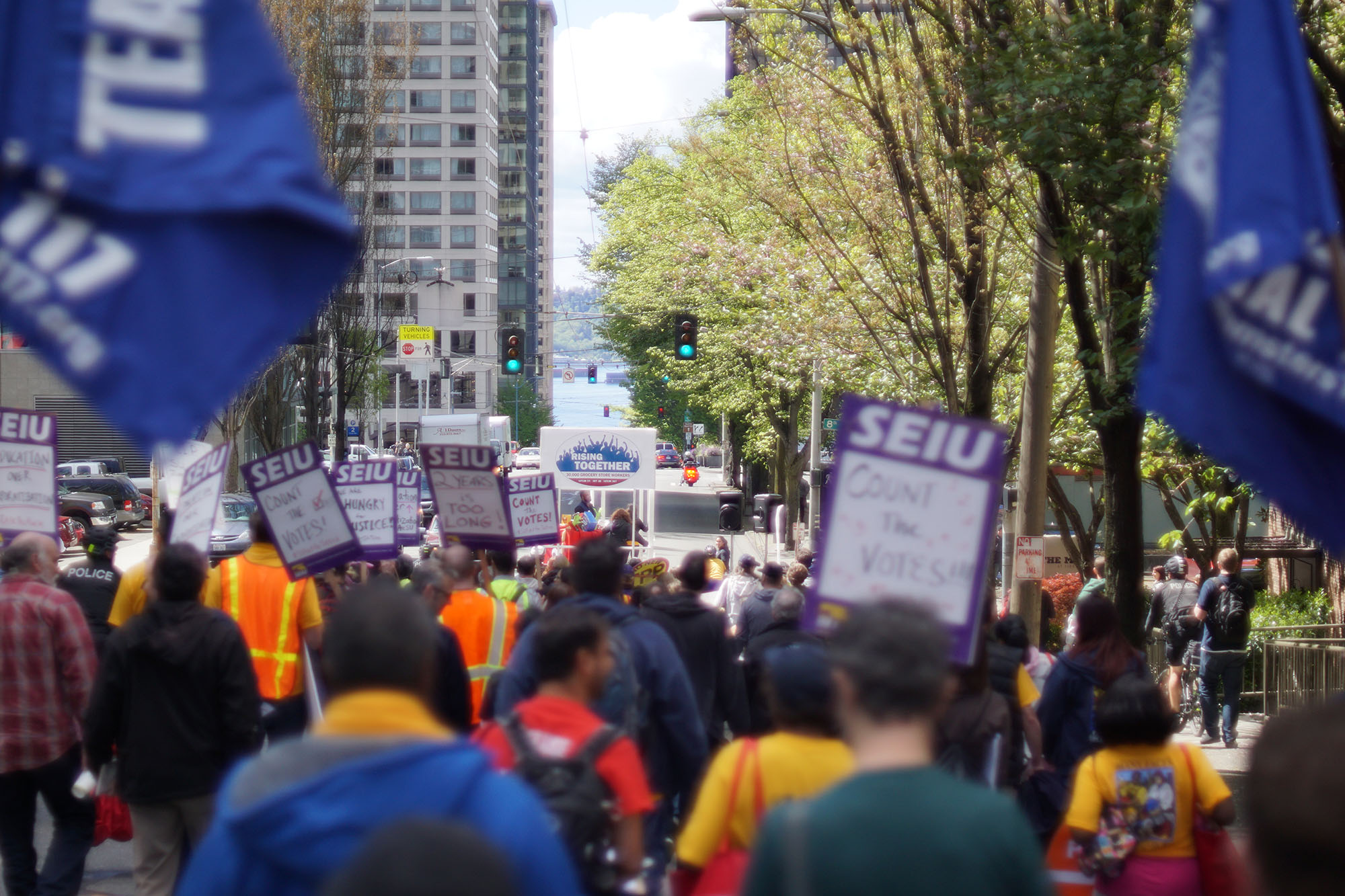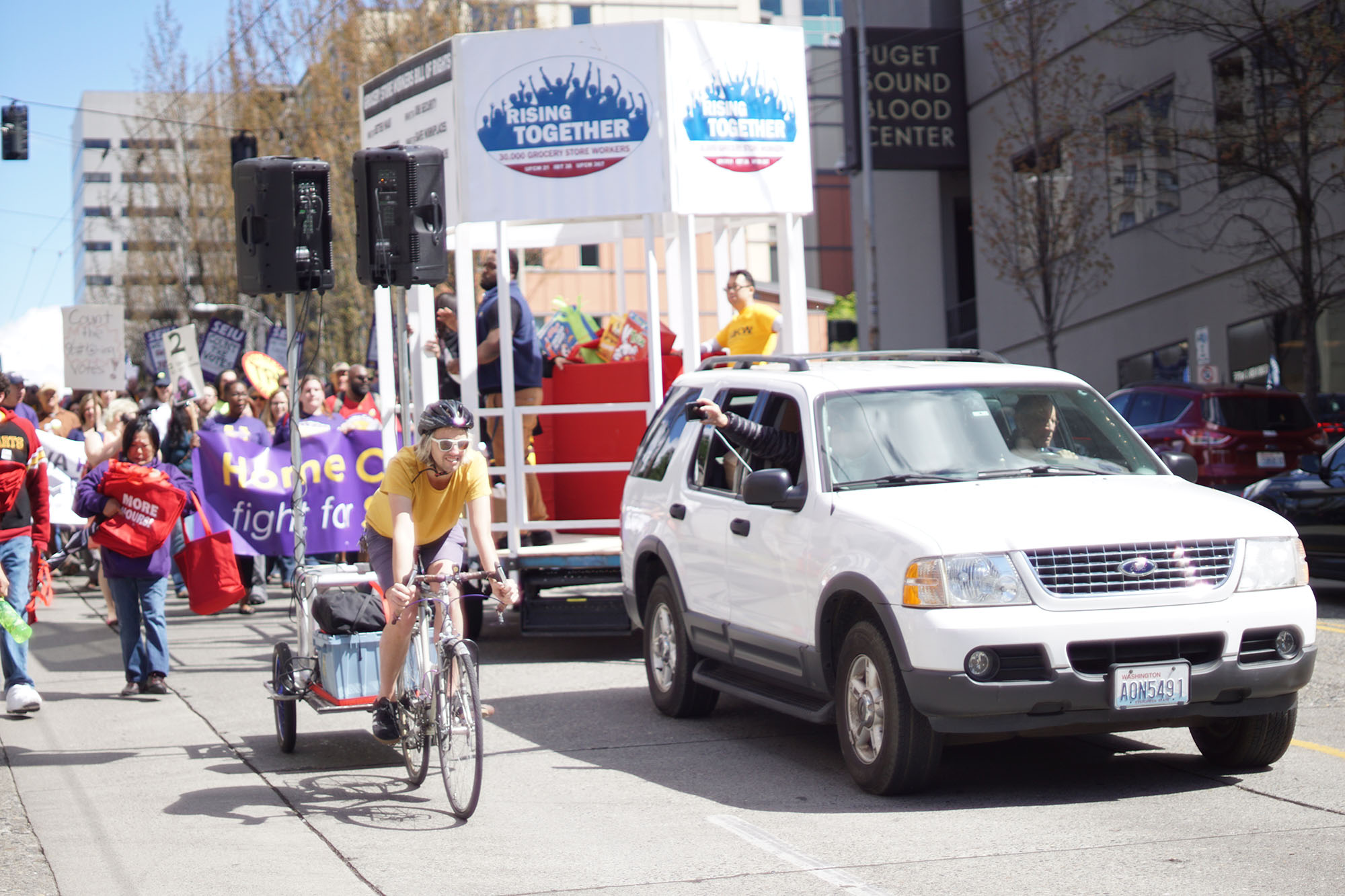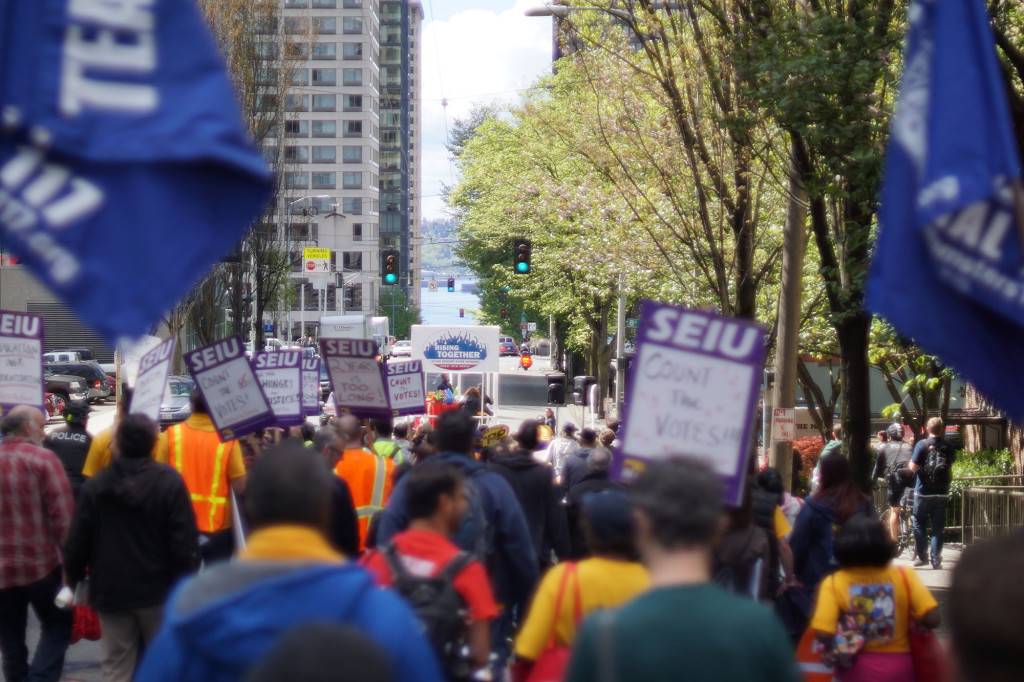“What’s disgusting? Union busting! What’s outrageous? Poverty wages!” shouted the coalition of students, healthcare workers, community organizers, faculty, grocery store workers, local politicians and protesters from all walks of life as they marched past the Seattle University Administration building.

Protestors march down 7th Ave. carrying signs provided by Service Employees International Union (SEIU).
On Thursday of last week, the Seattle U campus—and a sizable stretch of Madison Street—became part of the parade route for “Fast for Justice,” a major demonstration for the international day of action for worker’s rights and living wages. Members of the Seattle U community, namely adjunct faculty members and those who support them, stood in the ranks of protesters brandishing signs and shouting pointed chants reprimanding the administration’s continued efforts to fight faculty unionization. In the midst of this renewed passion, it’s important to understand that this standoff which began nearly two years ago has not budged since. With tensions rising and the clock ticking, the divide between faculty and administration is only getting wider.
The Seattle University Administration issued a statement
on the day of the protest that reestablished its position and further insisted that its adjunct faculty are well supported. According to the statement, as of Fall Quarter 2015, our faculty is 68 percent full-time—of which 65 percent are tenured or tenure track and 35 percent are non-tenure track—and 32 percent part-time. The last number has fluctuated, ranging from 30 percent in 2003-04 to a high of 34 percent in 2010-11.
“Seattle U seeks to make the conditions of our faculty, in terms of their compensation, in terms of their health benefits, in terms of their working conditions, as good as possible,” said President Fr. Stephen Sundborg, S.J. “We’re proud of our record.”
Faculty, Sundborg said, are key to Seattle U’s ability to deliver its educational program. The real challenge is that under the standard set by the National Labor Relations Board, the university is not considered a religious institution, and thus falls under their jurisdiction. Seattle U appealed that decision, along with four other catholic universities, more than five months ago.
“[Faculty] have a right to be able to organize and to choose their union. We don’t deny that,” Sundborg said. “We’ve submitted our appeal. That’s why there’s this delay. We have no role in why it’s taking so long.”
While he does not oppose unions in general, Sundborg believes our university’s ability to pursue its mission will be obstructed if the SEIU represents the faculty. He explained that there are two important principles currently at odds with each other: the right of the faculty to unionize and the right of the university to maintain its religious character.
“We should be able…to work directly with our faculty in the development of our programs and the assignment of their particular course, of what time of day they’re scheduled, everything,” Sundborg said. “It’s a critical thing, being able to work directly with them on these matters rather than having to go through a union representative.”

A truck towing a platform leads the mass of protestors down Madison Street.
In the meantime, students, staff and faculty members at Seattle U continue their fight for equal
working conditions.
Ben Stork, a film studies instructor, spoke passionately to the crowd at the protest last week.
“We are here to learn to be full human beings,” he shouted. “That’s why I want the vote to be counted, to bargain collectively, to wield our power together.”
At the protest, a cheering coalition of baristas, grocery store workers, fast food workers and nursing home workers, along with adjunct professors, student workers, religious leaders and other laborers from across the state greeted Stork.
City Councilmember Kshama Sawant spoke at the rally as well.
“Life is harrowing for those who are responsible for preparing the next generation. It’s not just numbers on paper, these are real human beings who are suffering the consequences of a deeply unequal society, and the only way we can change it is if we organize,” she said through a megaphone. “We are starting to turn the tide. Let us keep the fight going.”
Later, during an interview, Sawant explained the central role that students and full-time tenured faculty can play. While the former have a uniquely powerful position to criticize the administration, the latter have job security, which allows them to speak freely without fear of retaliation.
“History shows us that campus movements are often the catalyst for larger movements,” Sawant said. “This is the moment, not to stand aside and be a bystander, but to plunge into the churn of what’s happening around us.”
Nobody knows what happens when an unstoppable force meets an immovable object. As the administration continues to appeal in front of the National Labor Relations Board, union seekers restlessly wait for the vote to be counted. Time is the deciding factor.











